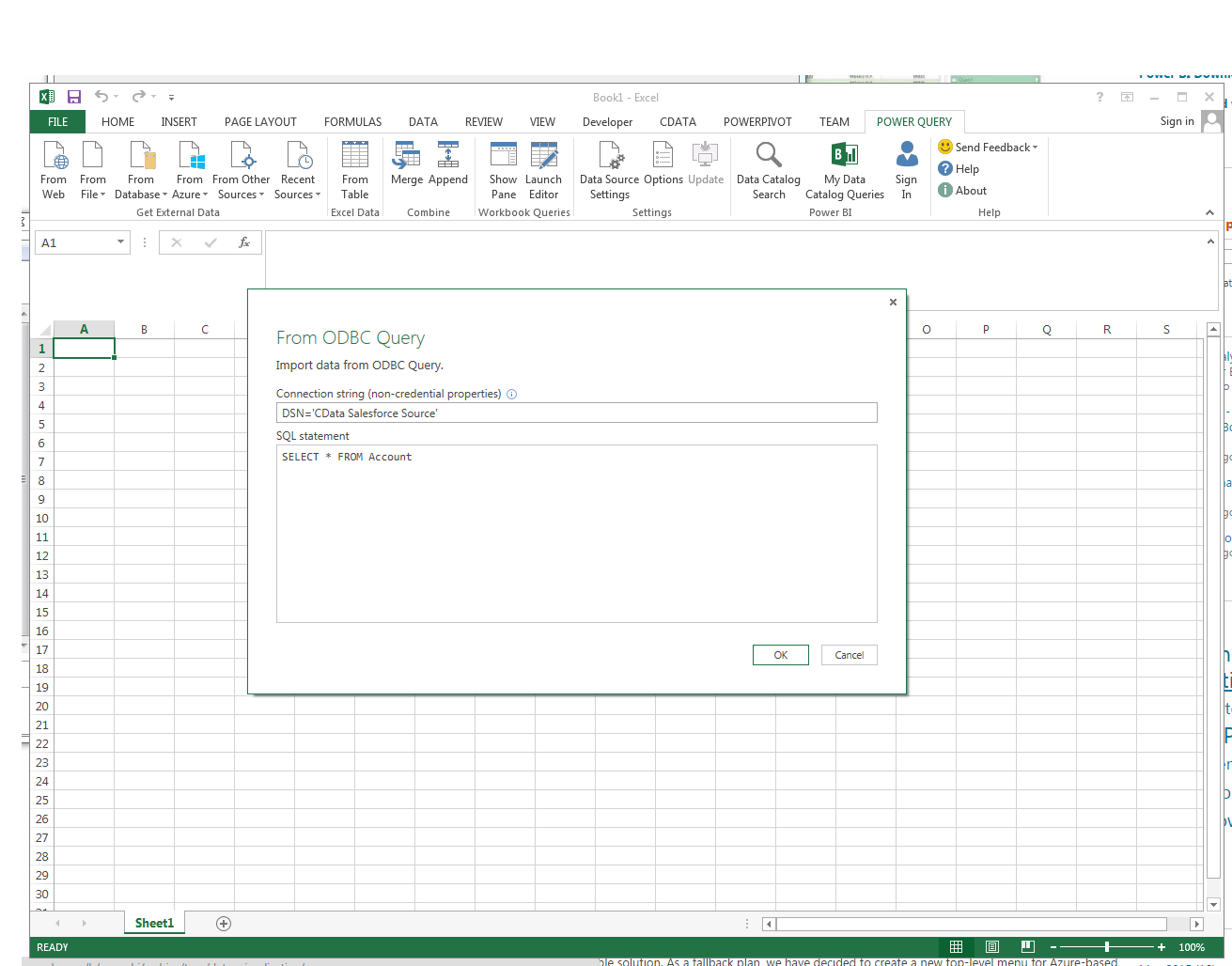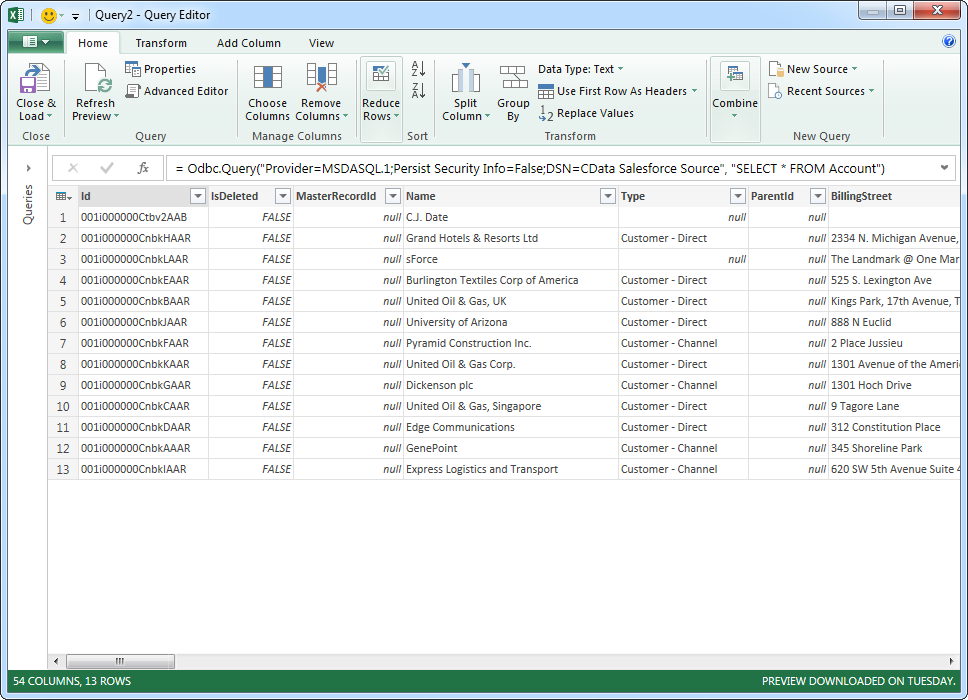Discover how a bimodal integration strategy can address the major data management challenges facing your organization today.
Get the Report →Use the CData ODBC Driver for Google Spanner in Microsoft Power Query
You can use the CData Google Spanner ODBC Driver with Microsoft Power Query. In this article, you will use the ODBC driver to import Google Spanner data into Microsoft Power Query.
The CData ODBC Driver for Google Spanner enables you to link to Google Spanner data in Microsoft Power Query, ensuring that you see any updates. This article details how to use the ODBC driver to import Google Spanner data into Microsoft Power Query.
Connect to Google Spanner as an ODBC Data Source
If you have not already, first specify connection properties in an ODBC DSN (data source name). This is the last step of the driver installation. You can use the Microsoft ODBC Data Source Administrator to create and configure ODBC DSNs.
Google Spanner uses the OAuth authentication standard. To authenticate using OAuth, you can use the embedded credentials or register an app with Google.
See the Getting Started guide in the CData driver documentation for more information.
Import Google Spanner Data
Follow the steps below to import Google Spanner data using standard SQL:
-
From the ribbon in Excel, click Power Query -> From Other Data Sources -> From ODBC.
- Enter the ODBC connection string. Below is a connection string using the default DSN created when you install the driver:
Provider=MSDASQL.1;Persist Security Info=False;DSN=CData GoogleSpanner Source -
Enter the SELECT statement to import data with. For example:
SELECT Name, TotalDue FROM Customer![The ODBC connection string and SELECT query. (Salesforce is shown.)]()
Enter credentials, if required, and click Connect. The results of the query are displayed in the Query Editor Preview. You can combine queries from other data sources or refine the data with Power Query formulas. To load the query to the worksheet, click the Close and Load button.
![Tables loaded in Power Query. (Salesforce is shown.)]()








